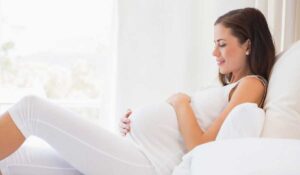QUALITY OF LIFE DURING AND POST MENOPAUSE
Menopause is a unique event in women’s life which occurs around the age of 50 and is a stage that all women would experience.
Menopause phase signifies the normal aging process that subjects women from the reproductive to the non-reproductive state. The Population Projections Survey in India reveals that the number of women aged 45 years and above is expected to reach 401 million in 2026 from 96 million at present. These huge numbers of women are expected to spend nearly 30 years in a post-reproductive period of life
- women (74.56%) experienced physical symptoms such as frequent back pain in the lumbar region (96%)
- the decrease in physical strength (92%)
- generalized weakness
- tiredness (89%)
- weight gain (88%)
- pain in the neck (88%)
- generalized musculoskeletal pain (87%)
- lack of energy (85%)
- difficulty in sleeping (85%)
- frequent flatulence problems (78%)
- poor physical energy (78%)
- changes in appearance,
- texture, and tone in the skin (75%)
- stress incontinence while laughing or coughing (69%)
- dryness of skin (55%)
Don’t worry, Relax Enjoy this important phase of your Beautiful life.
COMPLICATIONS:
Social expectations and women’s role changes and due to the advancing age and it may contribute to the heightened rate of depression in women.
Women at 40 also feel sexual incompatibility which many times can be frustrating.
The fluctuation in the level of estrogen may lead to vaginal dryness, less vaginal lubrication which in turn decreases sexual resulting compromised situation for women and when the counterpart is not understanding it’s really become depressive and feeling of lonely less privileged.
Another complication that every woman at this stage feel is the feeling of not knowing the exact answer that why these mood swings are happening.
One problem that can be felt is to cope with new female family member adjustment as its most common tendency of being compared with each other and hormonal imbalance can be more problematic.
Almost every Indian women are expected to spend nearly 22-24 years in the postmenopausal period with a mean menopausal age of 47.5 years and life expectancy of 71 years (Indian Menopause Society),
How we can improve our QOL DURING AND POST MENOPAUSE.
LED ACTIVE LIFESTYLE
An active lifestyle is one of the best methods to improve the quality of life in all aspects of wealth its physical, or emotional well-being. It also helps to improve sleep disorders, mood swings, and better cognitive functions, increase memory /concentration. It is found that Physically active women had higher chances of achieving good Quality of life and fewer menopausal health problems than sedentary.
Being active includes being active at household chores along with a power pack exercise schedule. It is always found the women who are active in doing household chores assume herself being active but in reality, it doesn’t. So its high time at the 40’S to change your lifestyle.
What kind of exercises we can do:
Aerobic and walking
These exercises are effective in improving vasomotor, mental, social, physical, and sexual symptoms and in general and help to improve the quality of life in premenopausal and menopausal women. Out of these aerobics, weight-bearing, and resistance exercises are all effective in increasing the bone mineral density of the spine in postmenopausal women.
Resistance and weight-bearing
Exercise= 3 days/week (on alternate days)
Brisk walking at the speed of five to six km/hr, cycling, treadmill, gardening or dancing may be done on the remaining days of the week. Precaution should be taken by women with knee pain as brisk walking can aggravate your pain.
High impact aerobics,
running/jogging,
jumping rope,
stair climbing,
sports like tennis, basketball, volleyball or gymnastics.
*Precaution should be taken by women’s osteoporotic, low bone mass, medical history.
Weight-bearing, low impact exercises:
Walking (treadmill/outside),
Low impact aerobics:
It includes marching at one place, sidestepping alternatively each side of the leg, taking hands up and down, drill exercises.
This group of exercises may be opted to build bones, by women who cannot do high impact exercises.
Warming up beforehand can help to reduce exercise-related injuries and pain following exercise. 2 hr/30 min moderate aerobic activity each week. Other deep breathing, yoga, and stretching exercises can help to manage the stress of life and menopause-related symptoms
EDUCATION:
Wondering how education will help in menopause

Especially during menopause, education would increase awareness, and awareness has a positive effect on their healthcare. There are many ways to spread awareness like group discussion, talking to a friend about your intimation problems can help you to reduce your stress and fear.
Talking to your family members about your changes that you are feeling in your body and asking them to help you out with this. One an individual in the family starts understanding your behavior and health issues you start feeling secure and relieved.
What does education do:
- Improve women’s
attitude
- Feel more
empowered and valuable
- Education for strengthening the muscles,
- Relaxation techniques, and
- Coping with problems of menopause
- Feel more
empowered and valuable
COMPLEMENTARY MEDICINE
Includes a wide range of herbal medicine containing phytoestrogen, isoflavone products, and food supplements Such as Soy.
Phytoestrogen, licorice could decrease depression and stress in menopausal women by increasing the level of dopamine and norepinephrine.
Royal jelly
It is a product of honey be that contains protein, sugars, fats, amino acids, vitamins, and minerals and also gamma globulin and elements needed for maintaining good health with various biological activities in body cells and tissues.
Fish oil
Improve the quality of life in menopausal women due to its icosapentaenoic acid and docosahexaenoic acid.
DIETARY REQUIREMENTS:
Calcium 700 mg per day
Vitamin D
Watch your wt
Healthy BMI is 18.5-25 kg/m2 – or use the
NHS online calculator
No to smoking and alcohol.



